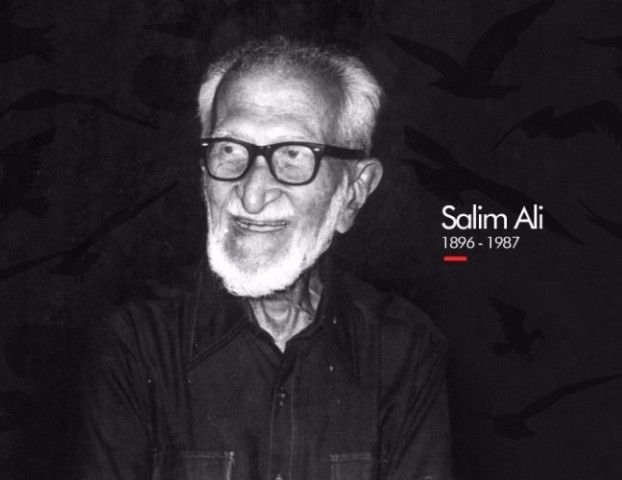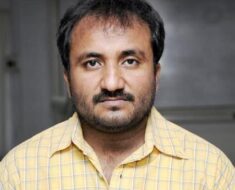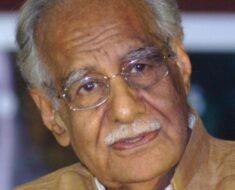Salim Moizuddin Abdul Ali, a name synonymous with Indian ornithology, left an indelible mark on the field. His dedication to birds and their conservation earned him the title “Birdman of India,” a testament to his lifelong passion and significant contributions.
Biography/Wiki, Caste
Born into a Sulaimani Bohra family on November 12, 1896, in Bombay (now Mumbai), Salim Ali was the youngest of nine children. Tragedy struck early; he lost his father at age one and his mother at three. Raised by his maternal uncle, Amiruddin Tyabji, and aunt, Hamida Begum, his early life instilled a love for reading. His primary education was at the Zenana Bible and Medical Mission Girls High School in Girgaum, Mumbai, alongside his sisters.
He pursued higher education at St. Xavier’s College, Mumbai. Initially drawn to hunting books, his uncle guided him towards sports shooting. A pivotal moment occurred when he shot a sparrow, leading to an introduction to the Bombay Natural History Society (BNHS) and W. S. Millard, who ignited his passion for ornithology.
Family
Salim Ali’s parents were Moizuddin and Zeenat-un-Nissa. He had eight siblings. He married Tehmina in December 1918. Information regarding his children remains unavailable.
Career
After leaving St. Xavier’s, Ali ventured into Burma (now Myanmar) to manage the family’s Wolfram (tungsten) mining business. There, he befriended J. C. Hopwood and Berthold Ribbentrop of the Burma Forest Service. Returning to India in 1917, he briefly studied Commercial Laws and Accountancy at Davar’s College, Mumbai. However, with the encouragement of Father Ethelbert Blatter, he eventually completed a course in Zoology.
Despite lacking a formal university degree, he secured a position as a guide lecturer at the Prince of Wales Museum’s natural history section in 1926. Dissatisfied, he pursued further studies in Germany under renowned ornithologist Erwin Stresemann. Upon his return to India in 1930, he faced unemployment. This period led him to Kihim, a coastal village near Mumbai, where he meticulously studied the breeding habits and mating system of the baya weaver.
His contributions to the Bombay Natural History Society (BNHS) were invaluable; he played a crucial role in securing its survival. He directly appealed to Prime Minister Jawaharlal Nehru for financial support. Salim Ali pioneered systematic ornithological surveys in India, significantly contributing to the establishment of several sanctuaries and national parks, including the Bharatpur Bird Sanctuary and Silent Valley National Park.
Awards/Honours
Salim Ali received numerous accolades throughout his career, showcasing his immense contributions to ornithology and conservation:
- 1958: Padma Bhushan and Honorary Doctorate from Aligarh Muslim University
- 1969: John C. Phillips Memorial Medal
- 1973: Doctorate from Delhi University and Pavlovsky Centenary Memorial Medal from the USSR Academy of Medical Sciences
- 1975: J. Paul Getty Award for Conservation Leadership
- 1976: Padma Vibhushan
- 1978: Doctorate from Andhra University
Famous Books
Salim Ali’s literary contributions were as impactful as his research:
- 1941: The Book of Indian Birds
- 1964: Handbook of the Birds of India and Pakistan (co-authored with Dillon Ripley)
- 1967: Common Birds (co-authored with Laeeq Futehally)
- 1985: The Fall of a Sparrow (Autobiography)
Death Cause
Salim Ali passed away on June 20, 1987, at the age of 90, following a prolonged battle with prostate cancer.
Facts
Here are some lesser-known facts about Salim Ali’s life:
- He was childhood friends with Iskander Mirza, who later became the first President of Pakistan.
- His uncle, Abbas Tyabji, was a prominent freedom fighter associated with Mahatma Gandhi.
- A chronic headache at age 13 caused him to leave school temporarily.
- He was an avid motorcyclist, owning a diverse collection of bikes.
- He advocated for the Great Indian Bustard to be the national bird of India.
- In 1967, he became the first non-British recipient of the British Ornithologists’ Union Gold Medal.
- He was nominated to the Rajya Sabha in 1985.
Legacy
Salim Ali’s legacy continues to inspire generations. The Salim Ali Centre for Ornithology and Natural History (SACON), established in 1990, stands as a testament to his enduring contribution. The Indian government issued a commemorative postal stamp in his honor in 1996, and his life story continues to influence popular culture.
| Award/Honor | Year |
|---|---|
| Padma Bhushan | 1958 |
| John C. Phillips Memorial Medal | 1969 |
| Padma Vibhushan | 1976 |
| J. Paul Getty Award for Conservation Leadership | 1975 |







